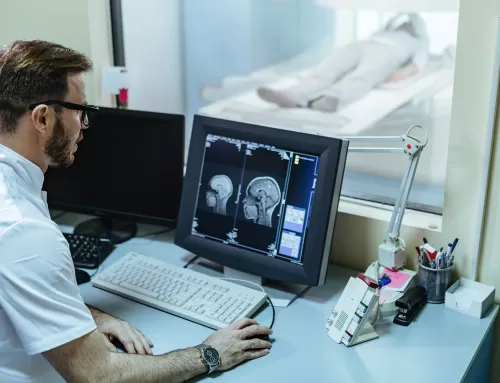False-positive reports in the medicolegal industry refer to instances where a test or examination incorrectly indicates the presence of a condition or disease when it is not present. False positive reports can have significant consequences in civil and criminal cases, potentially leading to wrongful accusations or judgments.
In this article, we will explore the causes of false-positive reports, their impact on legal proceedings, the consequences they entail, and measures to minimize their occurrence. By understanding these factors, we can work towards a fairer and more accurate justice system.
Causes of False-Positive Reports
False-positive reports can stem from various factors, including technological limitations, human error, flawed methodologies, and inadequate training. In some cases, the presence of confounding factors, biased interpretations, or unreliable evidence can contribute to erroneous findings. It is crucial to identify and address these underlying causes to minimize the occurrence of false-positive reports.
There are several causes of false-positive reports in the medicolegal industry. In fact, it is one of the leading challenges faced by the forensic psychology experts. The following are the leading causes of false-positive reports:
- Lack of standardization in testing procedures and protocols leads to variations in test results and increases the likelihood of false positives.
- Human error, such as mistakes made during the collection or analysis of samples and,
- The use of low-quality or outdated equipment can also contribute to false-positive results.
Impact of False-Positive Reports on Civil and Criminal Cases
The impact of false-positive reports on civil and criminal cases in the UK can be significant. In civil cases, it can lead to award of damages to the individual who has been falsely diagnosed. In criminal cases, it can lead to overturning convictions and releasing those who have been wrongfully imprisoned.
- In criminal cases, an erroneous positive report can lead to wrongful arrests, prosecutions, and convictions. Innocent individuals may suffer irreparable damage to their reputation, freedom, and livelihood.
- In civil cases, false positives can affect liability determinations, leading to unjust outcomes and the erosion of trust in the justice system.
Consequences of False-Positive Reports
The consequences of false-positive reports extend beyond individual cases. They contribute to a lack of confidence in forensic science, casting doubt on the reliability of expert testimony and forensic evidence as a whole. The repercussions can lead to a loss of faith in the justice system, hinder the pursuit of justice, and impede the fair resolution of legal disputes.
- Civil cases can lead to unnecessary treatments or procedures, financial costs and emotional distress.
- In criminal cases, it can lead to wrongful convictions and imprisonment.
Measures to Minimize False-Positive Reports
It is essential to have standardized testing procedures and protocols to minimize the occurrence of false-positive reports in the medicolegal industry. In addition, regular training and quality control measures for those involved in the testing process. Additionally, high-quality and up-to-date equipment is important to ensure accurate results. Collaboration between forensic professionals, legal experts, and scientists is crucial in developing robust methodologies and ensuring the accuracy of forensic analyses. To minimize false-positive reports, several measures should be implemented. These include
- Rigorous quality control procedures
- Adherence to scientific standards and protocols
- Ongoing training and education for forensic experts
- Independent verification of findings
- The utilization of advanced technologies
Preventing False-positive Reports in Court Proceedings
There are several ways a psychology expert can help prevent a false-positive report in court proceedings. By abiding by the following guidelines, a psychology expert can help to ensure that their assessment and diagnosis of mental disorders are accurate and reliable and that a false-positive report does not compromise the court proceedings. A psychology expert should:
- Be familiar with and adhere to established standards and guidelines for the assessment and diagnosis of mental disorders, such as those set forth by The British Psychological Society (BPS) and The Royal College of Psychiatrists (RCP)
- Use multiple sources of information when assessing and diagnosing mental disorders, such as interviews with the individual, observations, and review of relevant medical and psychological records.
- Use valid and reliable assessment tools, such as standardized diagnostic interviews, to assess and diagnose mental disorders.
- Be transparent in their methods and reasoning when assessing and diagnosing mental disorders so that the court can understand how the diagnosis was made and the evidence that supports it.
- Be neutral and unbiased in their mental disorders assessment and diagnosis, avoiding preconceptions and any kind of bias that could lead to a false-positive report.
- Always be aware of the legal context in which they work and understand how their findings may be used in court proceedings in the UK. They should be aware of the legal rules and regulations, such as the Criminal Justice and Public Order Act 1994, the Mental Health Act 1983, and the Mental Capacity Act 2005.
- Open and willing to question and re-evaluate their conclusions if new information becomes available or their findings are challenged.
Final Thoughts
In conclusion, false-positive reports can have severe ramifications in civil and criminal cases, jeopardizing the fairness and integrity of the justice system. By understanding the causes, impact, and consequences of false-positive reports, as well as implementing measures to minimize their occurrence, we can work towards a more accurate and just legal framework.
At Concise Medico, we ensure that through ongoing collaboration, education, and critical evaluation, forensic evidence plays a reliable and unbiased role in the pursuit of truth and justice. To ensure its mitigation, experts throughout the UK must follow a common standard for assessments. Using high-quality and up-to-date equipment is also crucial to ensure accurate results.




